One of the usual problems that car owners are often faced with is a backfiring engine. But what exactly is a backfire? What causes this to happen?
Find out everything you need to know about a backfiring engine right in this article from Philkotse.com:
What is an engine backfire?
An engine backfires when you can hear a loud popping noise that’s comparable to mini-explosions. This can be heard in the exhaust pipe.
This can even be seen in combination with flames coming out. This event is usually followed by power loss and forward motion.

An engine backfires when you can hear a loud popping noise that’s comparable to mini-explosions
What causes an engine to backfire?
Engine backfires can be caused by various reasons. This can be produced by bad timing, a vacuum leak, faulty sensor, exhaust leak, a problem in the ignition system, or other systems as well.
The engine backfires created once unburned fuel ignites within the exhaust manifold or the intake in the cylinder.
Why Do Cars Backfire?
You will hear these combustions as cough-like ignitions, but they can also be heard as loud bangs. One possible outcome of letting this problem rave on is that a strong explosion may cause damage to your exhaust manifold.
This damage is usually a crack that can either be small or large, depending on the case.
Although cases of engine backfire can originate from system malfunction, it is usually caused by human negligence. The good news is that more times than often, locating the source isn’t that hard. It might not even take you an hour.
To help you identify the cause of the problem at hand, here are a few possible causes and what you need to know about them.
>>> Read more:
- Do these bad driving habits and you will destroy your beloved car
- Here is how careless driving destroys your car components
1. Problems with the ignition system
Any particular problem that disturbs the ignition system spark may become a cause for engine backfires. It can also be connected with other issues with your engine’s performance.
A car engine needs thousands of volts to make the spark jump to the side electrode just on the end of the spark plug. Failure to maintain your ignition system can cause issues that can lead to backfires.
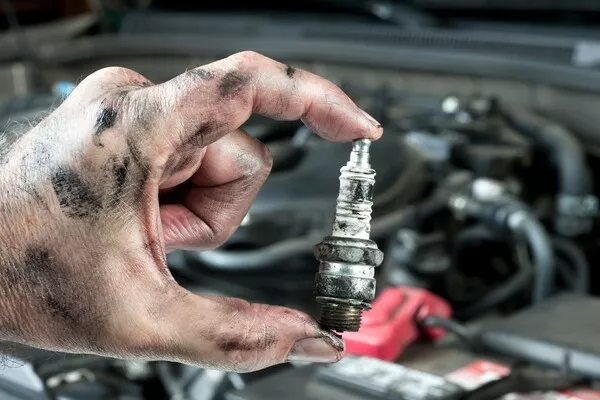
Failure to maintain your ignition system can cause issues that can lead to backfires
A great example of this is that the spark plug gap could widen if the plug is under operation for months. This will give the spark a hard time to make its jump.
Aside from that, carbon buildup can also isolate the electrodes. This event can prevent proper combustion. Unburned fuel then passes and enters the exhaust system where it backfires.
>>> For your information: Diagnose the signs of a bad car spark plugs
2. Problems with the injection system
A backfiring engine problem can also be traced to the vehicle’s fuel system. When an injector wears out or clogs, this causes the fuel and air mixture to lean.
As a result, the combustion process is weakened and fails to burn the fuel properly. If there’s too much-unburned fuel, it enters the vehicle’s exhaust system. This is where the fuel is ignited, causing a loud banging sound.
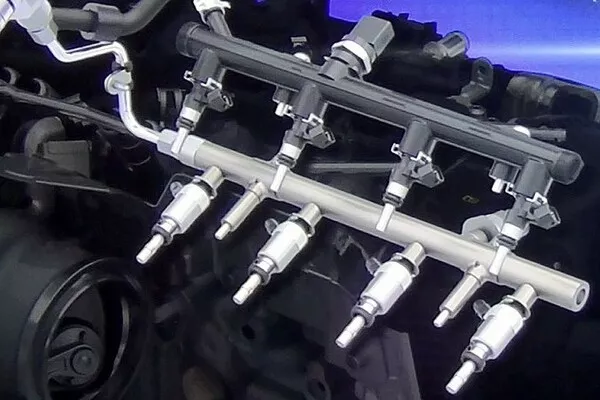
You should check the fuel injectors and make sure they’re operating properly
You should check the fuel injectors and make sure they’re operating properly. A mechanic’s stethoscope, along with a digital multimeter, is necessary for this.
Use these tools to check how your injectors are doing. Also, lean fuel mixtures can be brought by bad fuel regulators. It can also be caused by a clogging fuel filter and a fuel pump.
3. Problems with the engine sensor
Malfunctions relevant to the engine sensor can also be a cause for backfires. An example of this is a defective MAF or mass airflow sensor.
Your vehicle’s engine computer utilizes this along with other sensors to calculate how much fuel it should inject into the engine.
If any of the sensors fail to send the right signal, the computer could end up fuel that’s way too little than necessary. This would sum up to a lean fuel state.
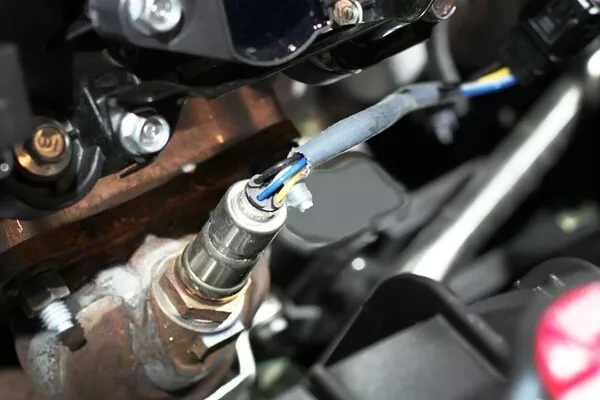
Malfunctions relevant to the engine sensor can also be a cause for backfires
A defective MAF sensor is bound to trigger your vehicle’s Check Engine Light. But many other sensors that are related to emission can fail, and this will also cause the CEL to light up.
Keep in mind that if your system is pointing towards a defective sensor, make sure you test the sensor in question before you replace it.
>>> You might not know:
4. Problem with the EGR
The EGR system stands for exhaust gas recirculation system. This is one of the common systems that can cause various problems if not in its best state.
This system is built to reintroduce a particular amount of exhaust gas to the cylinder. Here, the exhaust gas is “reburned.” This process reduces the combustion temperature and lowers dangerous emissions, including NOx.
Your EGR valve opens once the engine speed hits up. It closes while the engine is at rest and idling. If the valve is stuck closed, it won’t allow the exhaust gas to recirculate and go back into its combustion chamber.
This sometimes happens once carbon buildup clogs valve passages. The vacuum will then fail to control the valve. You can soon expect an electronic control sensor to fail, or the valve will get damaged.
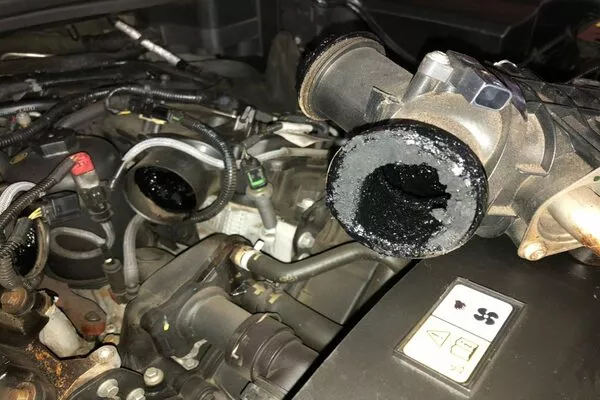
EGR system is one of the common systems that can cause various problems if not in its best state
If you haven’t been checking on the EGR valve, make sure you make it a habit from now on. Check if the valve still opens.
Also, take note if the passages are blocked. If you need to remove the EGR, the difficulty of doing so will depend largely on the model of your vehicle.
5. Problems with the ignition timing
Gasoline engines in cars need to shoot spark plugs at the right moment to ignite the fuel-air mixture in the cylinder.
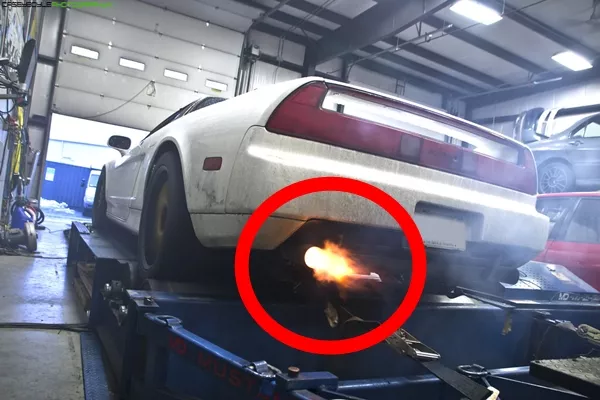
This condition usually causes the car engine to overheat
>>> Relevant article: Brief comparison: Diesel engine vs gasoline engine in the Philippines
“At the right moment” means that there are times that the spark has to be fired in advance. But this may still depend on the load conditions and engine speed.
But if a spark is fired too early before the cylinder compression stroke may cause engine pings or knocks. This condition usually causes the car engine to overheat. If the temperature is hot enough, it can also harm the exhaust manifold.
Recent posts
- How about having your car's engine run on vegetable oil or biodiesel? Feb 12, 2020
- How does warming up your engine really affect your vehicle? Dec 21, 2019
- [For Fun] The top 10 strangest engine swaps we've seen on the Internet Nov 30, 2022
- What drivers need to know when not changing engine oil Aug 16, 2022
- Which are better - bigger engines or small turbocharged engines? Dec 04, 2020












